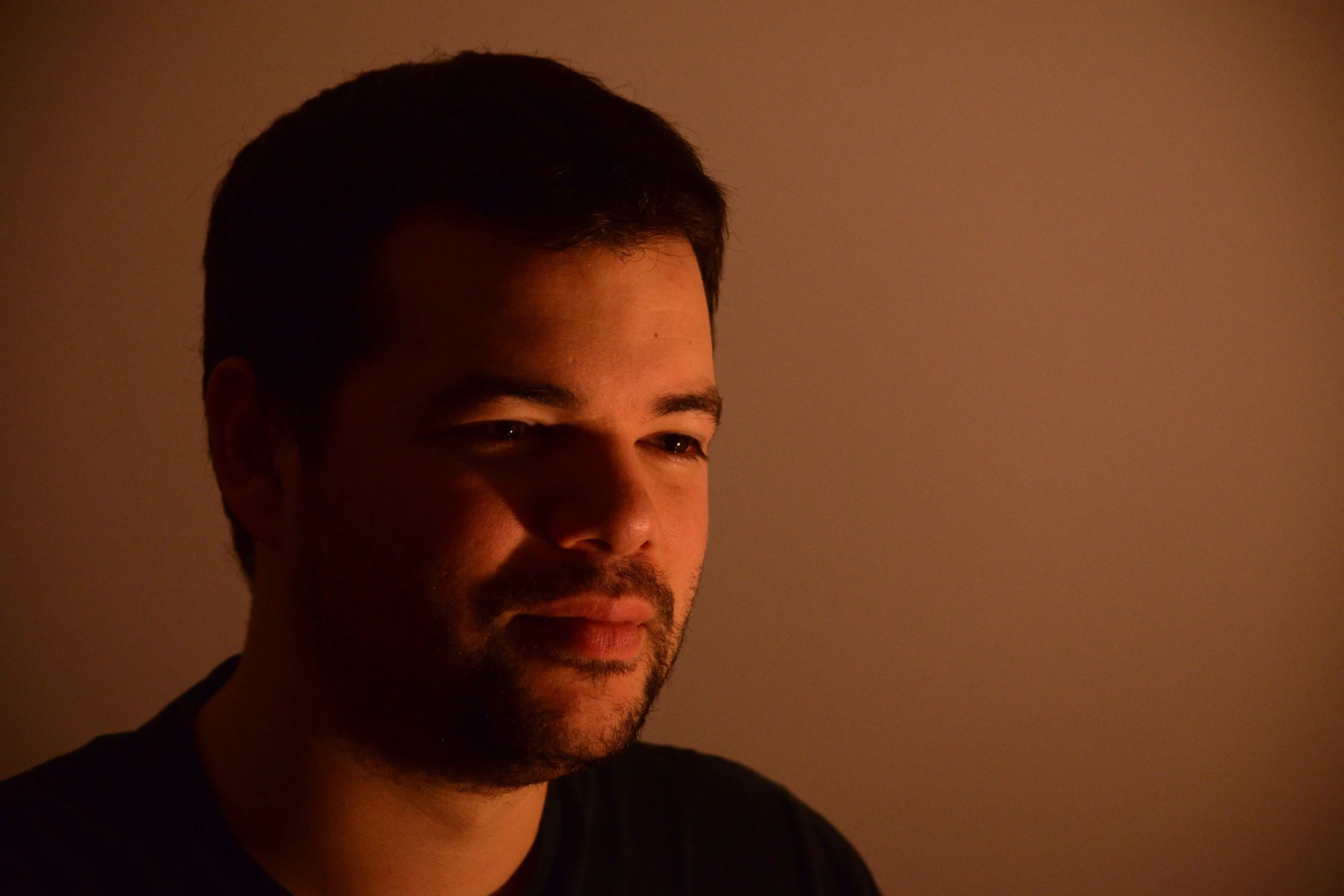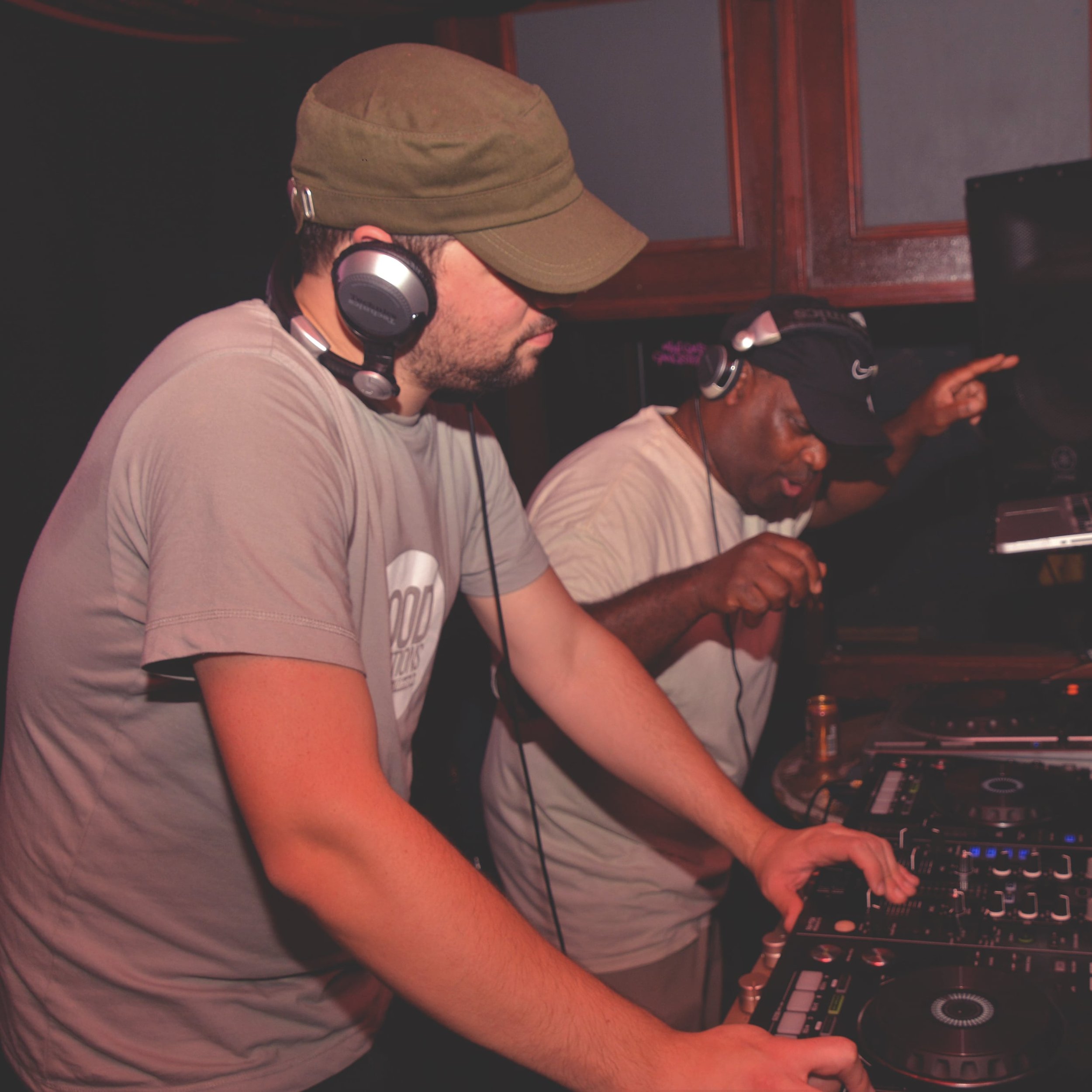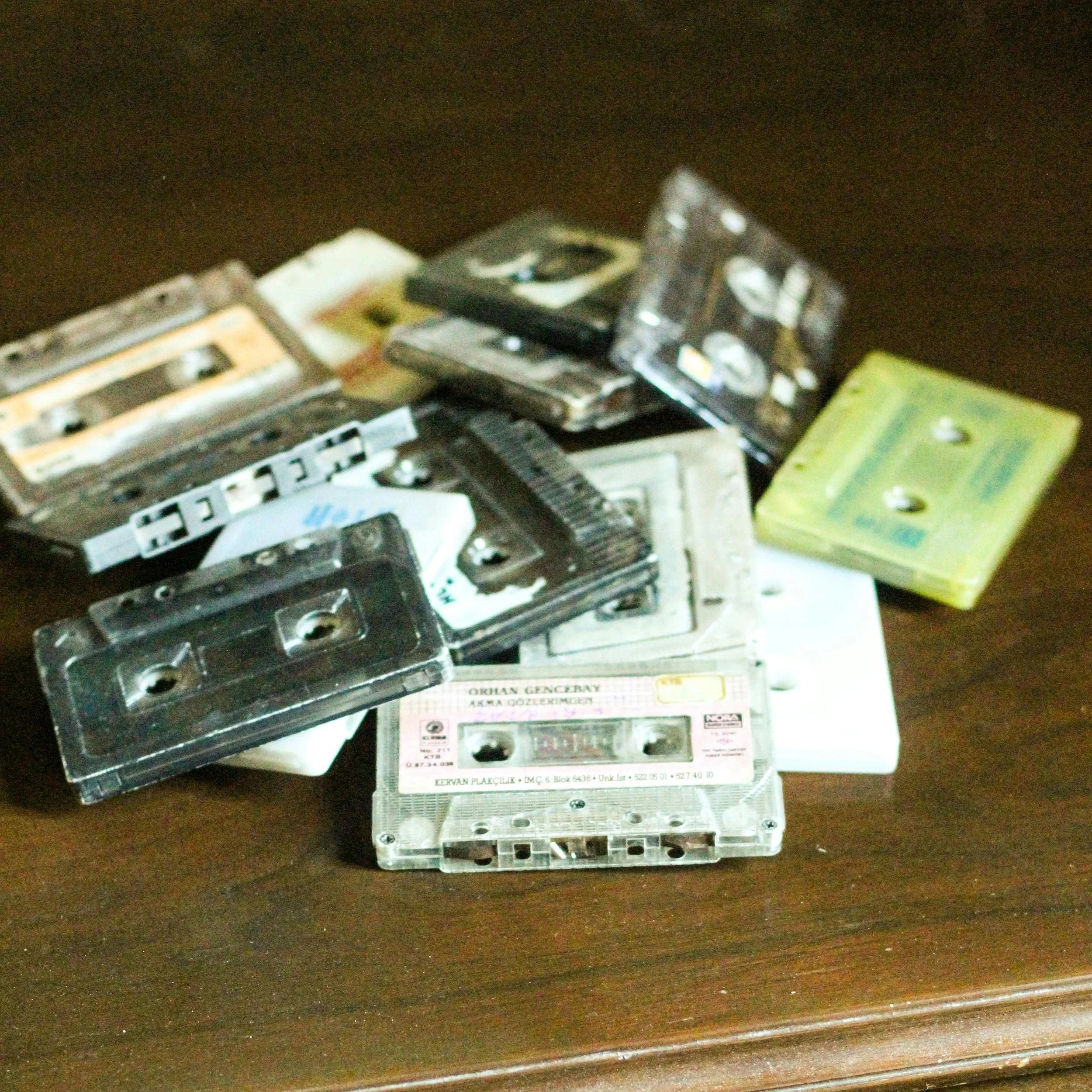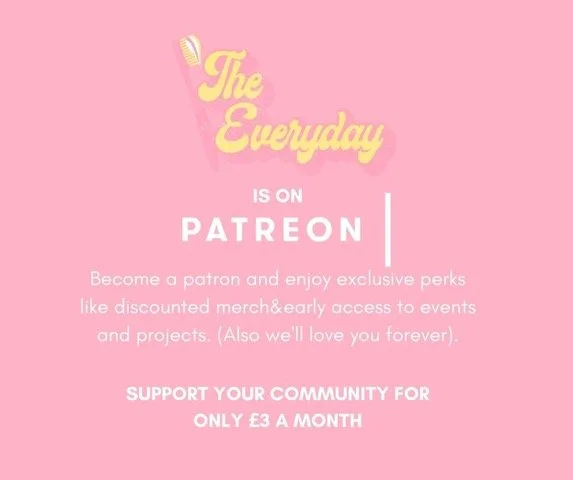Talking To: Sean McCabe
Bristol-based DJ and producer Sean McCabe has had plenty of time to develop his own sound within the house music scene. Famously, he released his first tracks in 2003 at the tender age of 17 and has spent the last two decades fine-tuning a trademark sound that is effortlessly soulful. Since then, he’s amassed an impressive discography of over 100 releases. While rooted in house, his sound regularly takes on flavours of disco, boogie, Afro, deeper grooves, proto-house, ‘90s garage-house dubs and much more besides.
As a DJ, he forged a reputation at the legendary Southport Weekender, where he performed regularly. Sean has also travelled the world, playing as far afield as Asia and South Africa, as well as regular appearances across Europe and the UK.
We caught up with Sean recently and talked about his musical upbringing, his career highlights so far, what’s great about the music scene in his hometown Bristol and across the world, and why playing to a small crowd in his local The Plough in Easton beats playing anywhere else, no matter how high profile, hands down every time.
Tell us a bit more about yourself and what you are doing at the moment.
In a nutshell, I’m someone who loves playing and producing soulful dance music, with a fusion of jazz, disco, latin, afro and soul influenced flavours. I began DJing and making music in 1999 at the age of 13, living in South Wales where I spent my teen years, and then I moved to Bristol in 2012 with my partner.
At the moment my main focus is on running my label Good Vibrations Music, which I started in 2016, alongside a number of collaborations and remixes.
What do you do in your everyday life?
I have a five year old son who keeps me on my toes, and as well as music production I have another part time job to help pay the bills. It can be difficult to get a good work-life balance with everything going on, and find it hard saying no to projects that excite me, but I somehow manage to get things done eventually.
What’s the dance music scene like in Bristol at the moment? Has it changed much from when you joined it?
I’ve only been in Bristol since 2012, but the thing that struck me when first coming here was how supportive everybody was of each other, when it comes to events, labels, DJ’s and musicians. As competitive as the industry can be, most people here want each other to succeed rather than try to a get ‘one-up’ on someone else. There is a lot of collaboration with a positive community spirit, which is absolutely key to building a strong music scene. I don’t think that has changed since I moved here.
There is also a lot of variety and open-mindedness to different styles. As a DJ I find I have a lot of freedom to go different places musically, with very few requests, and people will happily go with it and dance their socks off. And that can even be a crowd who aren’t that familiar with the music I play. I think that’s a wonderful thing, considering we now live in a society where people almost live in their headphones preferring their own personal playlists.
And the house music scene? Both locally and nationally?
I think that Bristol has one of the strongest house music scenes in the UK and am very grateful to be here. We have a great choice of venues, with owners and promoters who want to support house music parties, along with tons of talented DJ’s, producers, musicians, labels and radio stations all contributing their own unique vibe to the scene. It seems to only keep growing.
Nationally, the best house music scene I’ve experienced to date is in South Africa. The people there literally live and breathe this music, especially within the black communities, where there is a very personal connection rooted in house music, spiritually and lyrically. It’s on mainstream radio and TV, the events go from small weekly parties to huge festivals. Some of the best house music being made right now is coming out of South Africa as well.
There is also a sense of prioritising their homegrown talent and building their scene locally, rather than a reliance on bringing in headliners from other countries to make an event successful. Although I have been there to play, and have had some incredible experiences, they actually don’t need me there to pack out their events. They really are doing it for the love of the music.
Was music a big part of your life growing up? Did you have any music training or did you jump straight into DJing and producing?
Music was always on in our house growing up, but it ranged across all pop music really. The things I can remember in relation to anything jazzy or soulful are my grandad playing his jazz, big band and swing records, and my mum used to listen to soulful 90’s RnB while cleaning the house. My dad was a big ska fan too, and both my parents listened to all kinds of music.
I never had any musical training, I really just loved music in general. Dance music started to appeal to me and the way I would interact with it was through making mix tapes initially, inspired by radio mix shows. That started from CD’s as a kid and eventually moved to vinyl when I realised there was more interesting music I could only get in that format. I guess we’d call that underground music, but I didn’t see the difference at the time.
Around the same time, aged 13, I was a typical gaming kid with a Playstation, and I came across a game called ‘Music’ where you could arrange tracks by placing loops on a grid and layering them. It was a very basic digital audio workstation (DAW), a bit like GarageBand. This is really what sparked my interest in producing and it grew from there to more serious software like Reason, and then Cubase.
As my tastes developed and I was exposed to the music I liked, predominantly soulful house and US garage, I started to realise all of this music was rooted in jazz, gospel, disco and blues. You needed to have some level of musicianship and experience as a player to achieve that feeling in the tracks. Unfortunately I didn’t know of anyone who could play in that way where I lived in Wales so I had to learn for myself. So, I spent many years studying my favourite tracks, trying to work out chords, understanding harmony and scales, and spent a lot of time jamming along to those tracks.
Who are your heroes and other influences?
My early influences were really through radio mix shows, mainly Deli-G’s The Touch on Galaxy 101, and Danny Rampling’s Lovegroove Dance Party on Radio 1. I used to record these shows religiously every week and listen while going to school and college.
Most of the music I loved early on and still do were mainly US based artists like Masters At Work, Kerri Chandler, Big Moses, Mood II Swing, Blaze, Tony Humphries, Basement Boys, DJ Spinna and Frankie Feliciano.
UK influences came from the likes of Bobby and Steve, Dave Lee, Fanatix, The Rurals, Bugz In The Attic (Introducing me to Broken Beat), and most importantly two incredible people we have unfortunately lost in the last few years, legends Phil Asher and Paul Trouble Anderson.
Tell me about the new music you’ve made recently?
I’ve recently finished and released my remix of ‘Peace’ by Harold Matthews Jr on Good Vibrations Music. And a collaboration remix with Turbojazz of a track by Jimpster and Rich Medina called ‘This Thing’, which is now out on Foliage Records.
This year I also finished a project called ‘A New Day EP’ with Barcelona based musician Karmasound and it came out on Bristol-label ‘Phuture Shock Musik’. It started when Karmasound came to Bristol for a gig three years ago, and we did a studio session together and started two tracks. It took some time finding the right vocalists for the tracks, and then we decided to add a third track to give the EP a bit more variation. It features guest vocals from Erik Rico and Mabreezee.
Explain what experiences and ideas shape the music you make?
That’s a difficult question, as music for me is more of a feeling thing than thought based. But I think that experiences from clubs, dance floors and concerts I’ve been to definitely shape the sound. It sometimes helps to visualise a certain place or artist I’ve seen perform to draw inspiration from.
My first trip to NYC really changed something in a way that I could see how the dancers moved and felt the music, and how the DJ’s would play in a more expressive way on a sound system more attuned to deeper soulful music. Since then I can close my eyes and feel the vibe of the clubs I went to there.
I think ‘ideas’ usually shape my music through lyrics. Usually when I’m working on a remix of a song, the feeling of the song itself or meaning of the lyrics will have a huge influence on the music.
Where are you happiest? In the studio or playing out to a crowd?
Hmm, both are so different. I do love the feeling of being completely in the zone in the studio creating new ideas. It’s a very personal thing.
But if I had to choose, in the right kind of venue, I think playing music to a crowd feels the most fun. It energises me and gives me inspiration for going back in the studio to create music. I love sharing music with people and creating a vibe on the dance floor.
Who have you loved working with the most in your career?
My best experiences collaborating have been with London-based singer Nathan Adams. We’ve done a number of projects together over the years which always seem to turn into magic. As well as being a brilliant vocalist, he’s an incredible songwriter and musician too. When we get in the studio together, the flow and process always feels very natural and organic.
I’ve also really enjoyed writing and producing with Lem Springsteen (Mood II Swing), Hanlei, Karizma, Mike City, and Dave Lee.
And do you have a favourite DJing moment?
There have been some great moments over the years, such as sets at the Southport Weekender. Djoon in Paris was always on the bucket list and I finally had the opportunity to play there just before the pandemic hit. But in all honesty, I’m a fan of intimate spaces and my most favourite moments are our Good Vibrations parties at the Plough Inn right here in Bristol.
What other music/ Djs and producers are exciting you at the moment?
Kaidi Tatham and Josh Milan are two people who continue to keep me excited and inspired. Some other good ones to keep an eye on are Alex Attias, Melle Brown, Ian Fink, Sio, Haze City, Black Sonix, K15, and Turbojazz.
What is next?
I’m doing some more remixes for local labels ‘Boogie Cafe Records’ and ‘Phuture Shock Musik’ who I’ve been working with for some time. I’m also remixing something for NYC legend ‘Frankie Feliciano’ on his Ricanstruction record label.
I’ve also just finished preparing a vinyl album release set to be released February or March 2022 on my label Good Vibrations Music. The album is entitled ‘Peripheral Vision’ by Chicago based spoken-word artist called Harold Matthews Jr and is produced by a host of guest producers and myself.










